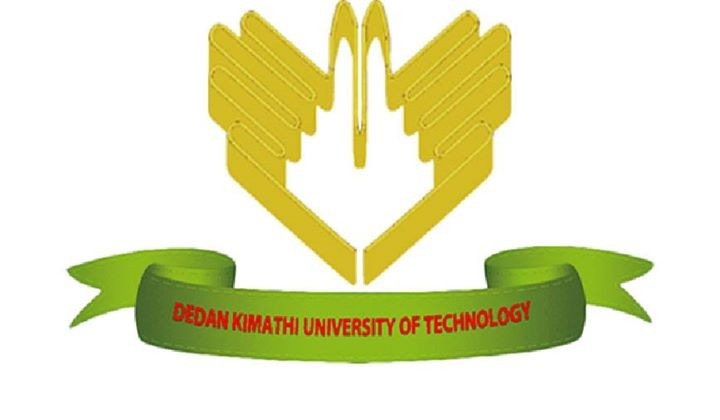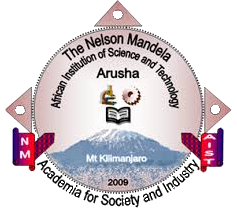Data Science Africa 2018
Nyeri, Kenya
Since 2015, Data Science Africa (DSA) has held an annual summer school and workshop to train participants on machine learning and data science methods and provide an avenue for researchers to present work demonstrating the application of these techniques to problems relevant in the African context.
For 2018, there will be two events: DSA 2018 Nyeri in Kenya, May 31st to June 8th and DSA 2018 Abuja in Nigeria, 12th to 16th November, representing our goal to consolidate the regional community in East Africa while also expanding to other regions. DSA 2018 Nyeri will focus on training approximately 30 participants who will then be able to serve as trainers in their local contexts. DSA 2018 Nyeri will be a "Training of Trainers" event under the theme "end-to-end data science."
This year's speakers and instructors include:
- Dina Machuve, Nelson Mandela African Institute of Science and Technology
- Ernest Mwebaze, Makerere University
- Jan Jongboom, ARM
- Kathleen Siminyu, Africa's Talking
- Neil Lawrence, Amazon and University of Sheffield
- Megan Yates, Ixio Analytics
- Billy Okal, Voyage
- Timnit Gebru, Microsoft Research
- Tom Dietterich, Oregon State University
- Max Welling, University of Amsterdam
- Mike Smith, University of Sheffield
- Damon Civin, ARM
We would like to expose data science trainers to the entire pipeline of data collection, analysis, and communication of results using relevant examples. We plan to have participants deploy sensor systems at the DeKUT conservancy and farm which will collect data that they will then analyse.
To benefit from this course participants must have some background in programming particularly programming with Python and machine learning. The registration process will include submission of worked examples in Jupyter notebooks. Registration is now OPEN.
School programme outline:
Configure a DSA Environment with Anaconda
Conda is an open source package management system and environment management system for installing multiple versions of software packages and their dependencies and switching easily between them. It works on Linux, OS X and Windows, and was created for Python programs but can package and distribute any software.
Overview
Using Anaconda consists of the following:
- Install
minicondaon your computer - Create a new
condaenvironment using this project - Each time you wish to work, activate your
condaenvironment
Installation
Download the latest version of miniconda that matches your system.
| Linux | Mac | Windows | |
|---|---|---|---|
| 64-bit | 64-bit (bash installer) | 64-bit (bash installer) | 64-bit (exe installer) |
| 32-bit | 32-bit (bash installer) | 32-bit (exe installer) |
Install miniconda on your machine. Detailed instructions:
- Linux: http://conda.pydata.org/docs/install/quick.html#linux-miniconda-install
- Mac: http://conda.pydata.org/docs/install/quick.html#os-x-miniconda-install
- Windows: http://conda.pydata.org/docs/install/quick.html#windows-miniconda-install
Setup the dsa2018 environment.
git clone https://github.com/emwebaze/dsa2018materials.git
cd setup
Create dsa2018. Running this command will create a new conda environment that is provisioned with most of the libraries you need for this summerschool.
conda env create -f dsaenvironment.yml
Verify that the dsa2018 environment was created in your environments:
conda info --envs
Cleanup downloaded libraries (remove tarballs, zip files, etc):
conda clean -tp
Uninstalling
To uninstall the environment:
conda env remove -n dsa2018
Using Anaconda
Now that you have created an environment, in order to use it, you will need to activate the environment. This must be done each time you begin a new working session i.e. open a new terminal window.
Activate the dsa2018 environment:
OS X and Linux
$ source activate dsa2018
Windows
Depending on shell either:
$ source activate dsa2018
or
$ activate dsa2018
That’s it. Now you can fire up your Jupyter Notebook from this terminal and it will load all the necessary libraries.
To exit the environment when you have completed your work session, simply close the terminal window.
Troubleshooting and comments..
Use the comment section below to (a) ask questions that are not already answered (b) help your peers by providing answers to their questions, if you can.
Time |
Activity |
Material |
|---|---|---|
08:00-09:00 |
Arrival and Registration |
|
09:30-09:30 |
Welcome and Opening Remarks |
|
09:30-10:30 |
Lecture 1: Introduction to Data Science |
|
10:30-11:00 |
Break |
|
11:00-12:00 |
Lecture 2: Fundamentals of IoT |
|
12:00-13:00 |
Practical Session: IoT |
|
13:00-14:00 |
Lunch |
|
14:00-15:30 |
Field work introduction, Prep IoT for FW1 |
|
15:30-17:30 |
Field Work 1: IoT Greenhouse deployment |
Time |
Activity |
Material |
|---|---|---|
08:30-09:30 |
Anomaly detection, density estimation tutorial |
|
09:30-10:30 |
Python, Pandas and Jupyter tutorial |
|
10:30-11:00 |
Break |
|
11:00-12:30 |
TAHMO Weather station network and data control task |
|
12:30-14:00 |
Lunch |
|
14:00-15:30 |
Classification Tutorial & Research Software |
|
15:30-17:30 |
Field Work 2: Camera Trap Deployment |
Time |
Activity |
Material |
|---|---|---|
08:30-09:30 |
Reinforcement Learning for ecosystem management |
|
09:30-10:30 |
Computer Vision and Image Analysis |
|
10:30-11:00 |
Break |
|
11:00-12:30 |
Data Visualization Tutorial |
|
12:30-14:00 |
Lunch |
|
14:00-15:30 |
Data Engineering and Infrastructure |
|
15:30-17:30 |
Field Work 3: Air Quality Sensor Deployment |
Time |
Activity |
Material |
|---|---|---|
08:30-09:30 |
Bayesian Methods |
|
09:30-10:30 |
Deploying Models |
|
10:30-11:00 |
Break |
|
11:00-12:30 |
Bayesian Methods Practical |
|
12:30-14:00 |
Lunch |
|
14:00-15:00 |
Spatial Data Analysis |
|
15:00-15:30 |
Break |
|
15:30-17:30 |
Spatial Data Analysis Practical |
Time |
Activity |
Material |
|---|---|---|
08:30-09:30 |
Engineering human vision : an introduction to convolutional neural networks |
|
09:30-10:30 |
Introduction to Deep Learning |
|
10:30-11:00 |
Break |
|
11:00-12:30 |
Practical Deep Learning |
|
13:30-14:30 |
Lunch |
|
14:30-16:00 |
Deep Learning Practical: Tensorflow |
|
16:00-17:00 |
Interpretability, Bias in Models |
Time |
Activity |
Material |
|---|---|---|
08:30-09:30 |
Advanced Deep Learning |
|
09:30-10:30 |
Introduction to Natural Language Processing (NLP) |
|
10:30-11:00 |
Break |
|
11:00-12:30 |
Deep Learning Practical II |
|
12:30-14:00 |
Lunch |
|
14:00-15:00 |
Adversarial Methods |
|
15:00-15:30 |
Break |
|
15:30-16:30 |
Closing Panel |
Call for Registration
The workshop will be organized around paper presentations and interactive panel discussions. We invite participants interested in presenting work at the workshop to submit a short abstract describing the application of data science methods to problems relevant to Africa. The submission should be limited to a 3 page (max) submission following this LaTeX template. You will be notified whether your work will be presented orally or as a poster. We are interested in work addressing low resourced developing world challenges in the broad areas of:
- Data Science for the Sustainable Development Goals
- Healthcare
- Agriculture
- Wildlife conservation
- Disaster response
- Geospatial modelling
- Telecommunications data modelling
- Economic monitoring
During the panel discussions, we will unite a wide range of stakeholders, including data scientists, representatives from government, development practitioners and the private sector; this will provide a unique setting in which innovative solution driven ideas can thrive.
Participants will also develop a framework for attracting young African talent, mentors and researchers from academia, the public sector and the private sector in Africa to engage in activities geared towards harnessing big data and real-time analytics for the public good.
Workshop programme outline:
DSA 2018 Nyeri Workshop Day 1
Time |
Presentation |
|
|---|---|---|
08:00-09:00 |
Arrival and Registration |
|
09:00-09:30 |
Workshop Opening |
|
09:30-10:00 |
Keynote 1 |
|
10:00-10:30 |
Keynote 2 |
|
10:30-11:00 |
Coffee Break |
|
11:20-11:40 |
Talk 2 - Towards 2050: Big data driven decision support in integrated smallholder farming systems |
|
11:40-12:00 |
Talk 3 - How do models learn: understanding feature importance in image classification models |
|
12:00-12:20 |
Talk 4 - Transfer learning for mobile phone credit scoring |
|
12:20-13:00 |
Panel 1 - Data for public good |
|
13:00-14:00 |
Lunch Break & group photo |
|
14:00-14:30 |
Keynote 3 - TBA |
|
14:30-14:50 |
Talk 5 - TBA |
|
14:50-15:10 |
Talk 12 - Mapping exposure of cattle to rift valley fever virus along their migratory routes |
|
15:10-15:30 |
Talk 7 - Machine learning approach on reducing student dropout rate |
|
15:30-16:00 |
Tea Break |
|
16:00-16:40 |
Panel 2 - Building local capacity - Africa Data Science Community |
|
16:40-17:00 |
Day 1 Wrap up |
DSA 2018 Nyeri Workshop Day 2
Time |
Presentation |
|
|---|---|---|
08:00-09:00 |
Arrival and Registration |
|
09:00-09:30 |
Announcements & logistics |
|
09:30-10:00 |
Keynote 4 |
|
10:00-10:30 |
Keynote 5 |
|
10:30-11:00 |
Coffee Break |
|
11:00-11:20 |
Talk 8 - A real-time simplified smart agriculture system for small scale greenhouse farming |
|
11:20-11:40 |
Talk 9 - Data-driven patient diagnosis with Dr. Elsa |
|
11:40-12:00 |
Talk 10 - Air quality monitoring |
|
12:00-12:30 |
Panel 3 - Applications of data science in government |
|
12:30-12:40 |
Talk 11 - DeKUT IoT and Data science projects |
|
12:40-13:00 |
Spotlight talks |
|
13:00-14:00 |
Lunch Break |
|
14:00-14:30 |
Keynote 5 - TBA |
|
14:30-14:50 |
Talk 12 - Converging blockchain and next-gen AI technologies for biomedical research |
|
14:50-15:10 |
Talk 13 - Why Data Science is so important in Off Grid Solar |
|
15:10-15:30 |
Tea Break |
|
16:00-16:20 |
Panel 4 - Lessons from DSA 2018 |
|
16:20-16:30 |
Closing |
Collaborators





Sponsorship
Gold Sponsors
Silver Sponsors
Sponsoring Data Science Africa 2018 Event is a great way to communicate your commitment to support the achievement of the sustainable development goals. To become a sponsor, please contact Data Science Africa at info@datascienceafrica.org





